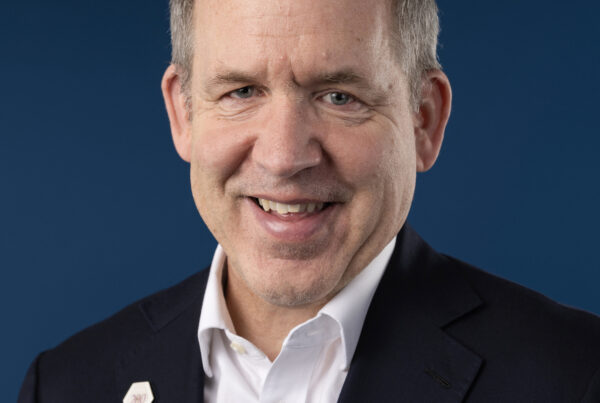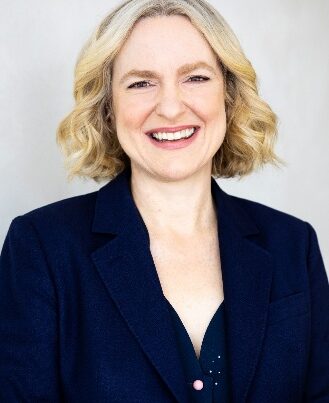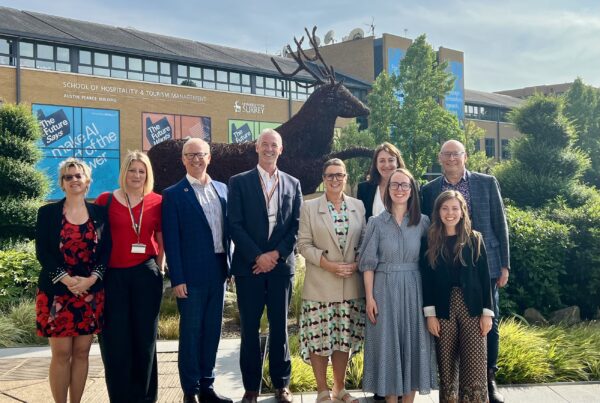Celebrating diversity among universities searching for social licence
One of the universal virtues that many that work in higher education share and celebrate is its ability to transform lives. This is increasingly evident for those that are first in family to attend university. University participation rates globally have grown from being under 10% when it was the preserve of the elite, to 40% now. We celebrate the strengths which arise from greater diversity in higher education participation as well as the increased economic benefits. A transformation in participation means we embrace learners in the system who may bring different expectations of their learning institution and the role it plays in their communities.
All tertiary education institutions are part of the same or related regulatory systems. Some of the steps being taken through the Australian Universities Accord review may see these regulatory provisions evolve. But regardless of where we end up in regulating providers, we will need all providers to focus on pursuing their own missions and gain their own social licence alongside regulatory approval. We traditionally measured learning achievements and status of providers by measures of excellence, reputation, and qualifications. That has been the licence to operate of long-established institutions. Social licence means other things to learners, communities, and providers now that we have greater diversity in the system.
Some learners, including many international students, wish to go to providers that are perceived to have the status and reputation because of performance in traditional research rankings. It is why some would challenge whether those with both the gift of a longer history, and choice of location, might be unfairly advantaged in seeking fee paying international students in competitive markets. This is particularly consequential when the tertiary education system is subsidised by profits from fee-paying international students.
But not all learners are the same. Other students, both domestic and international, put a greater emphasis on skills, personal journeys of transformation, and the networks and jobs they enter. Others might prioritise an association with places making the best and most aligned impact in the world to their own beliefs and ambitions.
Our cities are also evolving and changing and the communities that form in them are developing different priorities, needs and aspirations. Our universities must respond to this geographical and societal change to maintain relevance and ensure continuing social licence. This is often best ensured through strong and authentic local partnerships.
White settlement in Sydney is often thought of as being associated with the suburbs in the east and around its harbour. But even in the earliest days of colonial occupation, Sydney’s west was the land of opportunity. Today Greater Western Sydney is one of the fastest growing regions in Australia, is at the heart of our national agenda, and significant on a global scale.
Sydney’s universities and places of learning have evolved with these changes. The University of Sydney and UNSW still pride themselves, in what is now clearly the east more than the centre, as having a reputation for research excellence and historical reputation. This has been key to their success over an extended period in growing large-scale international student recruitment and attracting world-leading researchers. Their recent joint 19th ranking in global assessments, mainly based on historical research quality, are their means of celebrating their achievements and advocating them to external audiences.
Western Sydney University (WSU) is a different place, with a different mission, and its own way of earning its social licence. It is deeply embedded with local communities, including businesses and all levels of government. Recognising the responsibility to grow tertiary education provision, for a fast-growing population with increasing aspiration and skills and learning needs, it is helping other universities and tertiary education institutions move west.
It is focussing on gaining and articulating social licence through association with local communities, partnerships with others, and serving local priorities that are relevant on a global scale. It has a different mission and sees this form of global contribution as critical to what it is doing.
The local issues of global relevance it addresses include diabetes which impacts the population of Western Sydney, but is also a global burden, and the design and engineering issues of urban heat so important to a major global city experiencing the impact of climate change. Addressing both allows WSU to demonstrate its relevance to local communities’ priorities while helping the university demonstrate a world-leading contribution to UN sustainable development goals. It has done this to a greater extent than other global universities for two years in succession. WSU seeks this social licence from local communities that have a greater proportion of first in family and underrepresented student groups than its eastern cousins.
Our Universities Accord is seeking to celebrate this variety of missions rather than promote one over the other. With fixed resources and future funding, while total need and demand and participation is having to grow much further, the Accord is having to find a way of ensuring a distribution of funds that allows us to serve all our global ambitions for reputation and impact. It is having to look beyond the demands of single institutions to meet the priorities of a nation with growing skills and knowledge development needs.
The outcome of the Accord envisages new accountability mechanisms and a means of promoting institutional diversity. We should celebrate the difference and diversity in our institutions and their missions and encourage compacts that allow them all to flourish.
We might all need to accept a different funding and regulatory environment in the future. We might all need to accept that more than there being winners or losers as our system evolves to meet the needs of our learners and cities, that there is strength in collectively supporting diversity of providers with differences in mission. We discussed these issues in a recent HEDx podcast episode available here.
First published in Campus Review on 25th September 2023.
Professor Martin Betts, Founder of HEDx
Professor Clare Pollock, Provost and Senior Deputy Vice Chancellor, Western Sydney University









